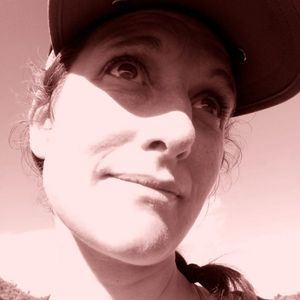Five weeks ago I got up early and, with nerves jangling, sat down at my computer to sit my first exam in fifteen years.
Last week I got the email to say I’d passed, and am now – officially, proudly, literally! – a Web Accessibility Specialist.

What follows is a brief introduction to the certification which I hope might inspire you to find out more for yourself. If you want to chat about the certification or accessibility in general, please feel free to get in touch.
The WAS (Web Accessibility Specialist) certification is one of five certifications offered by the International Association of Accessibility Professionals (IAAP). As a technical-level credential aimed specifically at web developers and designers, it is not a beginners certification: you are expected to have years of experience under your belt already. While you don’t need to be able to write code, you do need to understand HTML, JavaScript, testing across multiple environments, have experience with assistive technologies, and understand how to manage, design, test, audit and remediate for accessibility.
When I decided to do the certification back in October, I already had a decent understanding of accessibility, but my study until then had been self-directed and I yearned for a more structured approach. I knew there were gaps in my understanding and I lacked confidence; both of which I wanted to address.
Once I’d thrown myself into the preparation the exam itself felt irrelevant. It was liberating to allow myself the time to just learn: to explore specific areas that I felt less confident in, to spot the gaps in my knowledge, and sometimes to get lost for hours down a rabbit hole… I found myself looking forward to getting time to read documentation, and desperate to tell someone the exciting possibilities about the future of accessibility*. I submerged myself completely, and quite honestly it changed me though, like any decent journey, it’s hard to see that happening at the time.
Some recommendations:
- Study materials and courses: there are a number of recommendations from IAAP on how to Prepare for WAS. I followed Deque’s WAS Package, and highly recommend it – whatever stage of your journey you are on. On its own it’s not enough for the exam, so expect to do some self-directed study too.
- Organise your learning. I went through the Book of Knowledge and created a spreadsheet to keep track of my confidence levels for each of the topics. I assessed my confidence in each, and returned to this again and again, and gradually saw my confidence improving.
- Don’t rush. I originally thought I could get through the material in a few weeks, and maybe I could have. For me though, doing it at a more relaxed pace and bringing new insights into my daily work really helped to embed the knowledge properly. I put off the exam a few times, and I’m really glad I gave myself the extra time.
- Don’t start with WCAG. The Web Content Accessibility Guidelines are a work of genius, but they are hard going. If you are new to web accessibility, go ahead and dip in and out, but don’t try to read each and every one. You will need to know them for the exam though, so I’d suggest reading them once you are already in love with accessibility, and then you may find that they are a real page-turner.
Eventually I felt it was time to put myself to the test, I sat the exam and waited** and last week I got my results. I did well and I am really proud. This is one of the bits of my job that I absolutely love, and I would love to help others to love it too.
* Some rabbit holes for you to fall down:
- UX Collective: Heck yes, accessibility - lets make the future awesome
- BBC: Why coronavirus may make the world more accessible
- Web Accessibility Initiative: Cognitive accessibility at W3C
- YouTube, Webinar from Funka: Cognitive accessibility – new requirements and future legislation
** The very last question in the exam asks for feedback on the previous questions. The examiners are looking for honest feedback from the world of accessibility specialists, realising that they are likely to have missed some of the potential nuances themselves, and are open to being alerted to their own mistakes.
Because of this, they don’t mark the exams until the end of the exam session, once they’ve taken into account the feedback and weighted the answers accordingly.
It's an honour to be part of this community.
